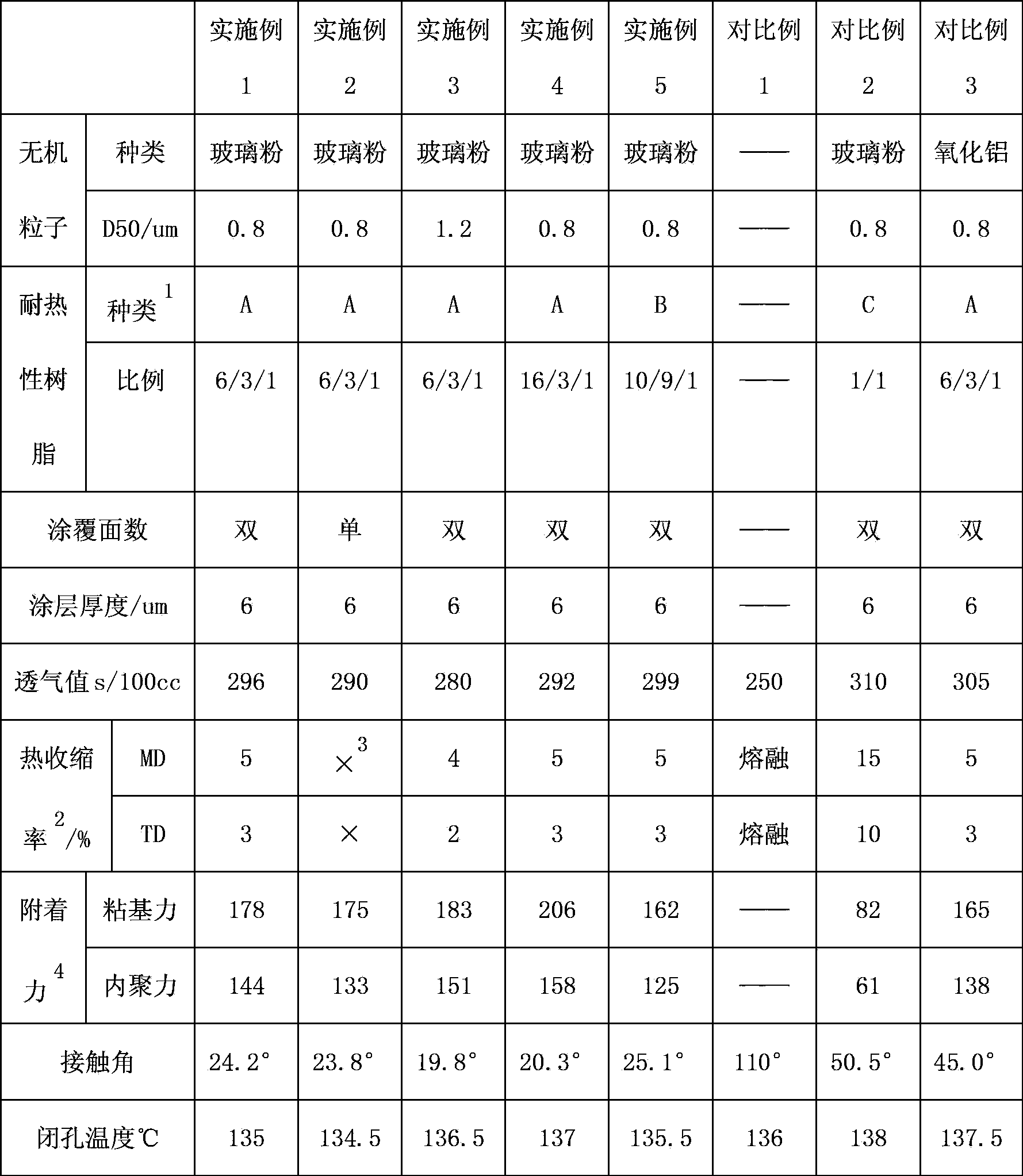Coating composition for separator of lithium ion secondary battery and method for producing the separator
A coating composition and secondary battery technology, applied in secondary batteries, battery components, coatings, etc., can solve the problems of diaphragm rupture, low closed cell temperature, and low melt fracture temperature
- Summary
- Abstract
- Description
- Claims
- Application Information
AI Technical Summary
Problems solved by technology
Method used
Image
Examples
Embodiment 1
[0047]The copolymer emulsion of lipophilic monomer n-butyl acrylate, hydrophilic monomer sodium acrylate and functional group monomer acrylic acid is selected as (the composition of the copolymer is, n-butyl acrylate: sodium acrylate: acrylic acid=6:3:1, weight ratio ) is a heat-resistant resin binder, which is dissolved and dispersed for 1 hour at room temperature with water as a solvent. Then add 80 parts of glass powder (average particle size of 0.8 μm) and 20 parts of the above heat-resistant resin binder solution into 100 parts of deionized water, and then disperse and mix it through a sand mill for 3 hours to obtain Coating solution.
[0048] Coat the coating solution prepared above with a wire bar on both surfaces of a 20 μm ultra-high molecular weight polyethylene-based film (abbreviated as UHMWPE, the same below), and then dry it in a blast drying oven at a temperature of 50 ℃. Composite microporous membranes with a total thickness of 6 μm (3 μm respectively) on bot...
Embodiment 2
[0051] The difference between this example and Example 1 is that: the coating solution prepared in Example 1 is coated on one surface of the UHMWPE base film, and then dried in an oven at 50°C. A composite microporous membrane with a coating thickness of 6 μm on one side was prepared.
[0052] Table 1 shows the properties of the composite microporous membrane for lithium-ion secondary batteries prepared above.
Embodiment 3
[0054] The difference between this embodiment and embodiment 1 lies in that the average particle diameter of the inorganic non-conductive insulating particles (glass frit) is 1.2 μm, which is the same as that of embodiment 1.
[0055] Table 1 shows the properties of the composite microporous membrane for lithium-ion secondary batteries prepared above.
PUM
| Property | Measurement | Unit |
|---|---|---|
| thermal decomposition temperature | aaaaa | aaaaa |
| thermal resistance | aaaaa | aaaaa |
| Knoop hardness | aaaaa | aaaaa |
Abstract
Description
Claims
Application Information
 Login to View More
Login to View More - R&D
- Intellectual Property
- Life Sciences
- Materials
- Tech Scout
- Unparalleled Data Quality
- Higher Quality Content
- 60% Fewer Hallucinations
Browse by: Latest US Patents, China's latest patents, Technical Efficacy Thesaurus, Application Domain, Technology Topic, Popular Technical Reports.
© 2025 PatSnap. All rights reserved.Legal|Privacy policy|Modern Slavery Act Transparency Statement|Sitemap|About US| Contact US: help@patsnap.com

